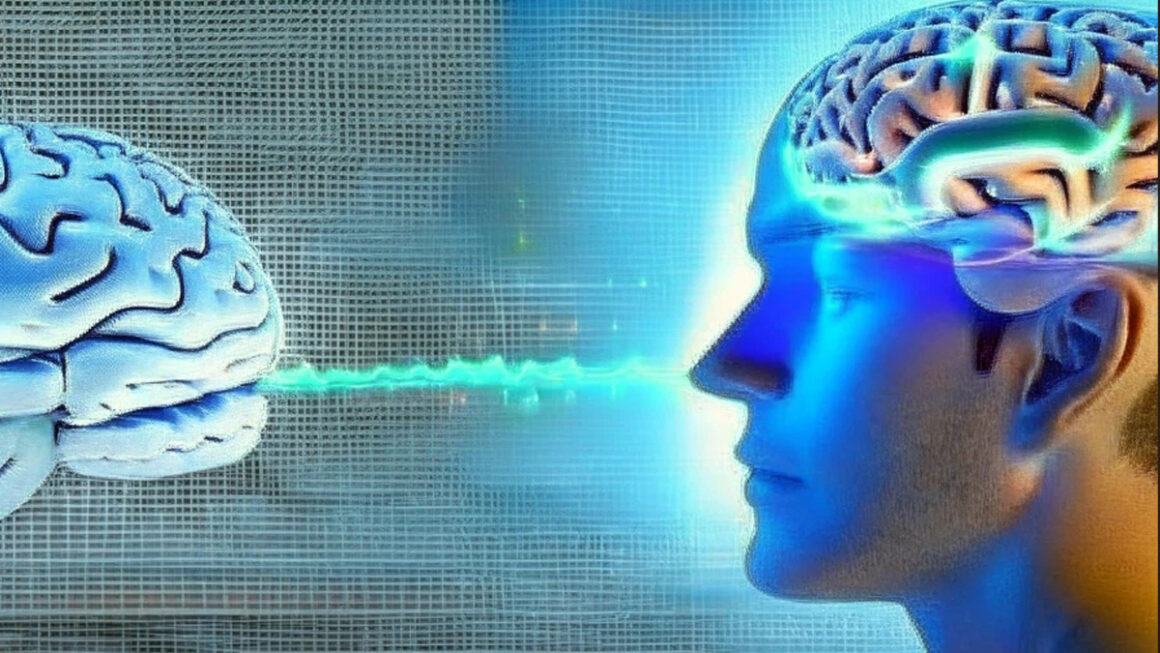A new study shows how the technology behind ChatGPT can be used to decode brain scans. Recent advances in AI suggest that this could affect blockchain and Web3.
The University of Texas at Austin has devised an artificial intelligence (AI) system that can interpret and reconstruct human thoughts.
Recently, the scientists published a paper in Nature Neuroscience investigating the use of AI to translate human thoughts into words in real time without invasive methods.
AI decodes human thoughts, its implications on blockchain
Researchers say that the current ways to turn thoughts into words are either invasive, because they “can only identify stimuli from among a small set of words or phrases.”
The limitations of functional magnetic resonance imaging (fMRI) signals from multiple areas of the human brain have been circumvented by a team at Austin. They achieved this by training a neural network to decode these signals.
The researchers conducted an experiment where they made a group of participants listen to hours of podcasts while their brain activity was recorded using an fMRI machine. This data was then utilized to train the AI system to recognize a particular user’s thinking patterns. In a subsequent stage of the experiment, the participants’ brain activity was monitored while they listened to podcasts, watched short films, and mentally narrated a story, and the AI system decoded the signals into everyday language in real-time using the participants’ fMRI data.
The University of Texas at Austin’s press release states that the AI system accurately conveyed the overall concepts being thought about by the participants approximately 50% of the time. The AI system, however, was not programmed to transmit the exact words being thought, but rather the general ideas being contemplated.
Scientists are very clear that this isn’t possible right now, which is good news for people who are worried that AI could get into their minds against their will.
The system can only work if it is trained on the brainwaves of a certain person. This means that it can’t be used to scan people who haven’t spent hours giving fMRI data.
And even though the information were generated without permission from the user, the team finds that both the decoding of the data and the machine’s ability to monitor thoughts in real time require the user’s active participation.
“[O]ur privacy analysis suggests that subject cooperation is currently required both to train and use the decoder. However, future developments might enable decoders to bypass these requirements. Moreover, even if decoder predictions are inaccurate without subject cooperation, they could be intentionally misinterpreted for malicious purposes.” researchers said.
In related news, a group of Saudi Arabian researchers recently came up with a way to improve the accuracy of diagnosing brain tumors by running MRI scans through a neural network built on the blockchain.
In their study, the Saudi researchers show how cancer research can be done more accurately and with less human error on a secure, decentralized blockchain.
There’s nothing stopping a smart creator with access to an fMRI machine from combining the two ideas to make an AI system that can read a person’s thoughts and save them to the blockchain.
This could lead to a “proof-of-thought” paradigm in which people mint nonfungible tokens (NFTs) of their opinions or record immutable ledgers of their emotions and ideas for posterity, legal purposes, or just to brag.
The use of blockchain technology to document thoughts or ideas as NFTs could have implications for copyright and patent applications, as the blockchain would serve as evidence of when they were recorded. It could also enable renowned intellectuals to document and sell their concepts as collectible digital assets.
Content Source: cointelegraph.com
The post Scientists in Texas develop mind-reading AI system appeared first on NFT News Pro.
